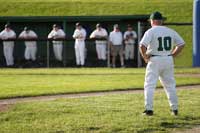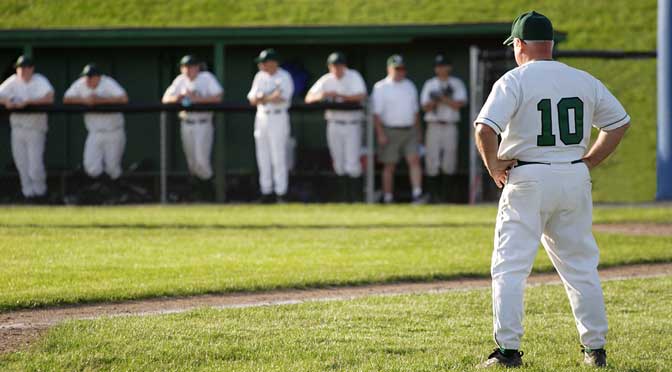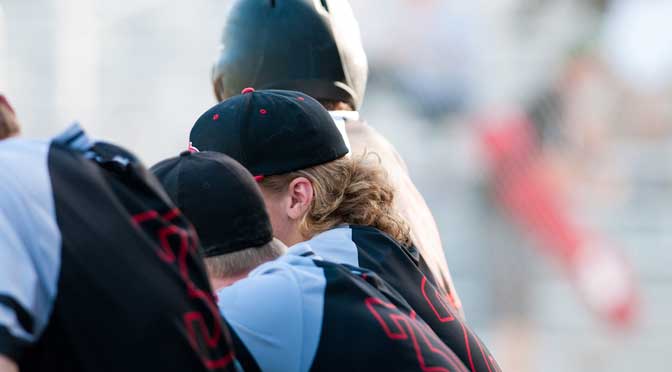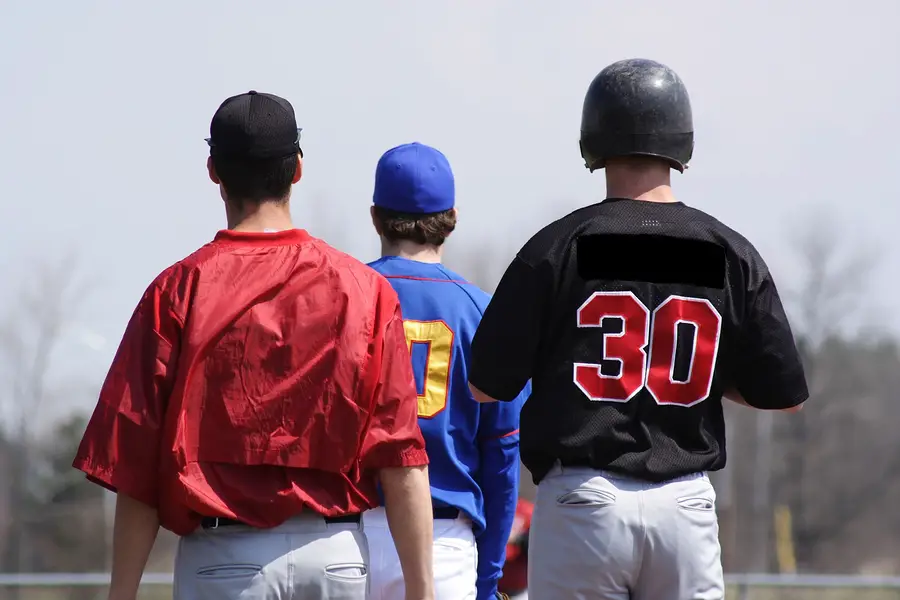 If you have even the slightest interest in college athletics, I don’t think it’s possible to have missed all the press on the college football post-season coaching changes. As coaches leave one school for another, there is the question about what happens to the players he recruited. And if you’re an existing, or hopefully soon to be, athletic recruit, the chances of finding yourself dealing with college coaching changes is more likely than you think. So keep up with the reading.
If you have even the slightest interest in college athletics, I don’t think it’s possible to have missed all the press on the college football post-season coaching changes. As coaches leave one school for another, there is the question about what happens to the players he recruited. And if you’re an existing, or hopefully soon to be, athletic recruit, the chances of finding yourself dealing with college coaching changes is more likely than you think. So keep up with the reading.
Baseball
What do College Baseball Coaches Want?
 Just before Christmas I shared some information from the College Baseball Profiles College Coaches survey and the importance of high school baseball–at least in New England. Today I want to point out some of the other survey results about college coaches and the baseball recruiting process.
Just before Christmas I shared some information from the College Baseball Profiles College Coaches survey and the importance of high school baseball–at least in New England. Today I want to point out some of the other survey results about college coaches and the baseball recruiting process.
High School Baseball Still Counts
 Anyone interested in playing college baseball needs to head over to College Baseball Profiles and read their latest College Coaches Survey. The focus is on New England colleges but it’s worth reading for some much needed insight in college baseball recruiting. Today I want to focus on one conclusion of the report-high school baseball still matters.
Anyone interested in playing college baseball needs to head over to College Baseball Profiles and read their latest College Coaches Survey. The focus is on New England colleges but it’s worth reading for some much needed insight in college baseball recruiting. Today I want to focus on one conclusion of the report-high school baseball still matters.
College Baseball Recruiting Timeline
 When looking at this recruiting timeline, keep in mind this is geared for baseball players. In many ways, your senior high school baseball season will not count. The majority of coaches (not all) will have already filled their recruit classes for the following year (your college freshman year). Depending on the division and conference (think “power 5”) they may have already filled the slots for the year after that (your college sophomore year) and only have a few left for the following year. Yes, college baseball coaches are taking verbal commitments from high school sophomores.
When looking at this recruiting timeline, keep in mind this is geared for baseball players. In many ways, your senior high school baseball season will not count. The majority of coaches (not all) will have already filled their recruit classes for the following year (your college freshman year). Depending on the division and conference (think “power 5”) they may have already filled the slots for the year after that (your college sophomore year) and only have a few left for the following year. Yes, college baseball coaches are taking verbal commitments from high school sophomores.
Which Colleges Spend the Most on D1 Baseball?
 (See the most updated information at here.) Given that full-ride scholarships are a rarity in college baseball, players may want to consider other ways colleges support their baseball programs. After all, there are ways for colleges to spend money on baseball that will affect the players’ overall experience besides just scholarships. This can include anything from uniforms, equipment, fields, to travel. For those interested in such things, this is an update on D1 baseball expenses by team using the latest information from the Office of Postsecondary Education (OPE).
(See the most updated information at here.) Given that full-ride scholarships are a rarity in college baseball, players may want to consider other ways colleges support their baseball programs. After all, there are ways for colleges to spend money on baseball that will affect the players’ overall experience besides just scholarships. This can include anything from uniforms, equipment, fields, to travel. For those interested in such things, this is an update on D1 baseball expenses by team using the latest information from the Office of Postsecondary Education (OPE).
Surprising Ways to Cut College Costs
ShareTweetFlipEmailPin11 SharesCheck out the latest episode of the College Prep Podcast. I had a great time as a guest on the College Prep Podcast with Megan and Gretchen discussing what parents need to know about scholarships. We also covered baseball scholarships, graduation rates, and college rankings. Be sure to look at some of their previous … Read more
How Much Do Colleges Spend on D2 Baseball Programs?
 As is the case for most sports, Division 2 is the smallest for baseball in the NCAA. According to the Office of Postsecondary Education, in 2013 there were 260 D2 baseball programs in 43 states including Puerto Rico. Pennsylvania had the most with 20, followed by California with 16. Georgia, Missouri, North Carolina, New York tied for third with 14 programs each.
As is the case for most sports, Division 2 is the smallest for baseball in the NCAA. According to the Office of Postsecondary Education, in 2013 there were 260 D2 baseball programs in 43 states including Puerto Rico. Pennsylvania had the most with 20, followed by California with 16. Georgia, Missouri, North Carolina, New York tied for third with 14 programs each.
Are College Baseball Players Happy?
 (The data is from 2010 but I think is still valuable today.)
(The data is from 2010 but I think is still valuable today.)
Do you know what you’re in for if you end up playing college baseball? Sure, you’ve talked to the coach multiple times and have done your overnight with the player. And you probably know about being able to do three things in college, study, play ball, and party but athletes only get to pick two. But do you really think you know what it’s going to be like?
What’s Important to College Baseball Coaches
 So why is a college baseball coach more likely to lose interest in a high school prospect, showing poor attitude at a game where the coach is watching or a poor high school season? If you said poor high school season, you’re wrong. Which would have a greater negative effect on the recruiting coach, seeing a game where the player had a poor performance or low grades? Obviously poor performance, right? Wrong. It’s low grades.
So why is a college baseball coach more likely to lose interest in a high school prospect, showing poor attitude at a game where the coach is watching or a poor high school season? If you said poor high school season, you’re wrong. Which would have a greater negative effect on the recruiting coach, seeing a game where the player had a poor performance or low grades? Obviously poor performance, right? Wrong. It’s low grades.





